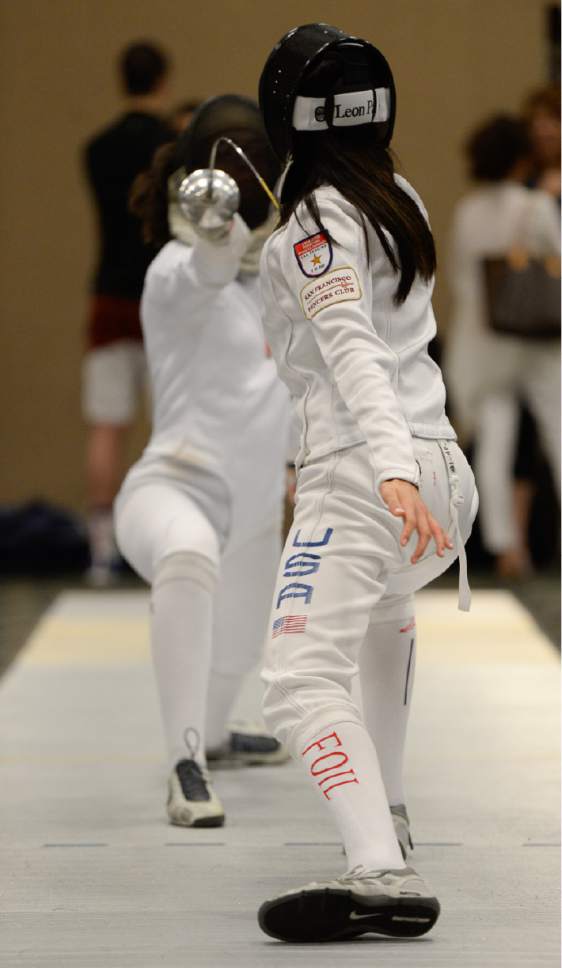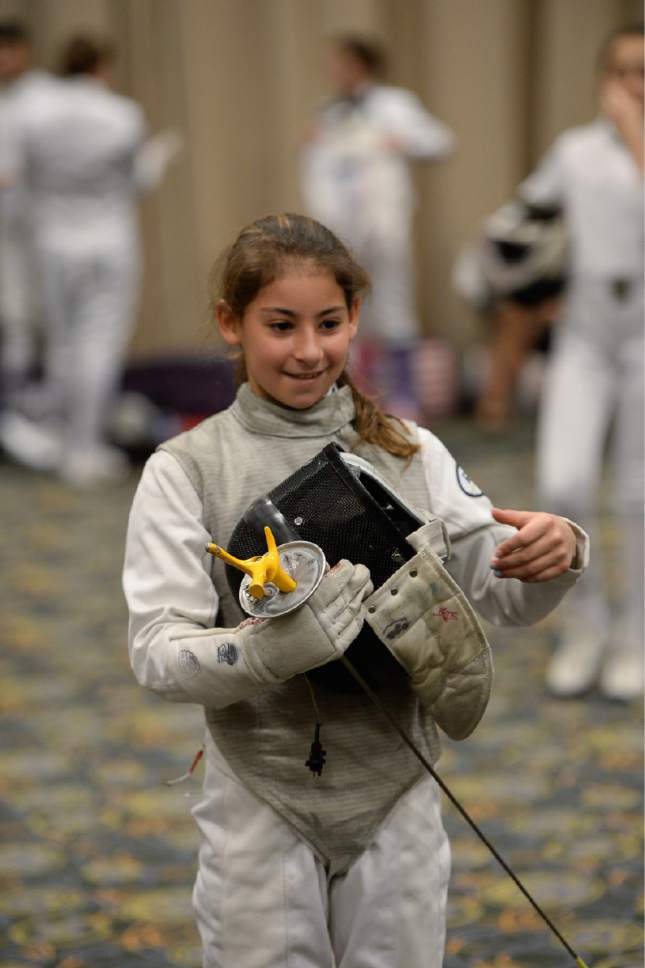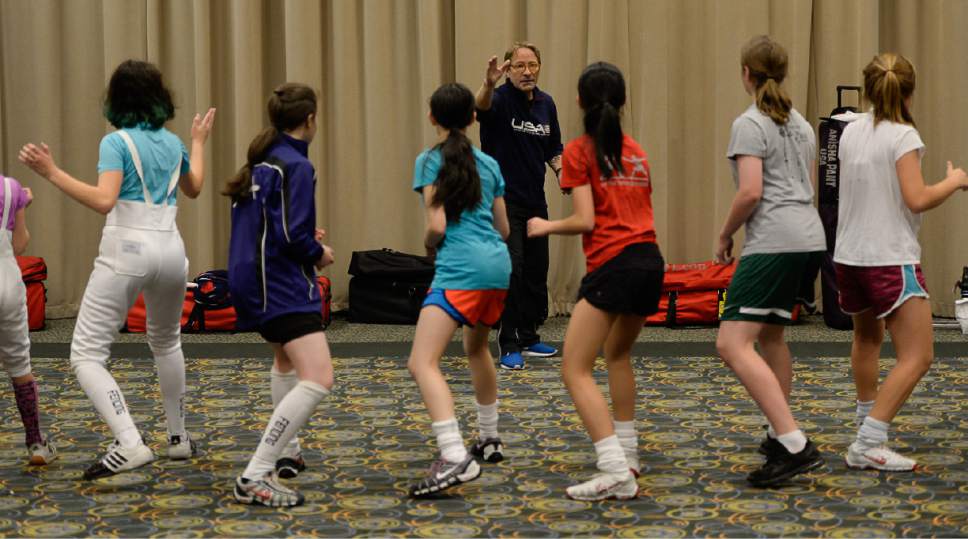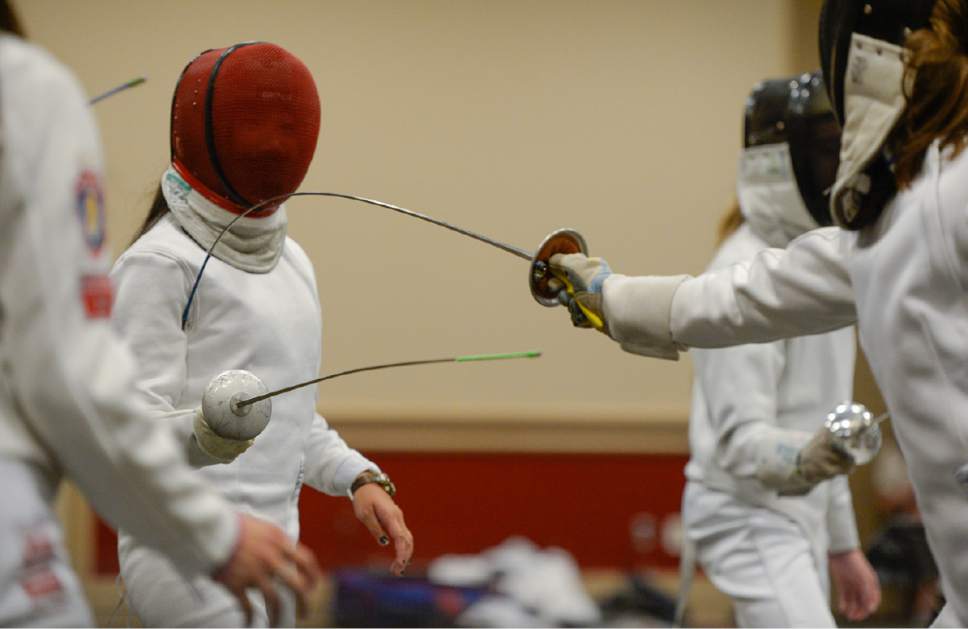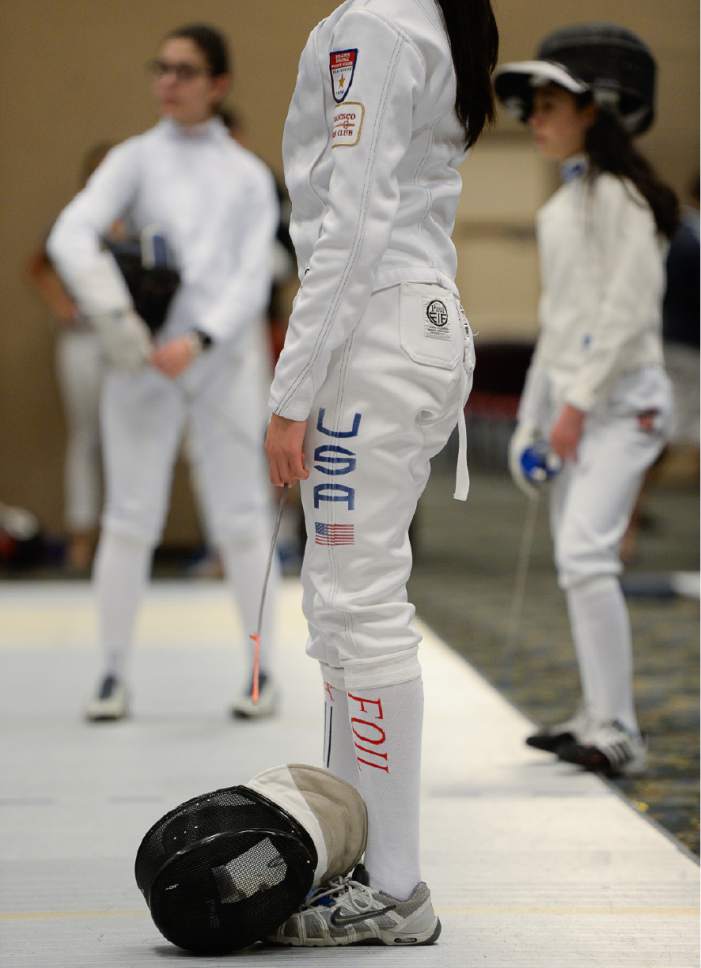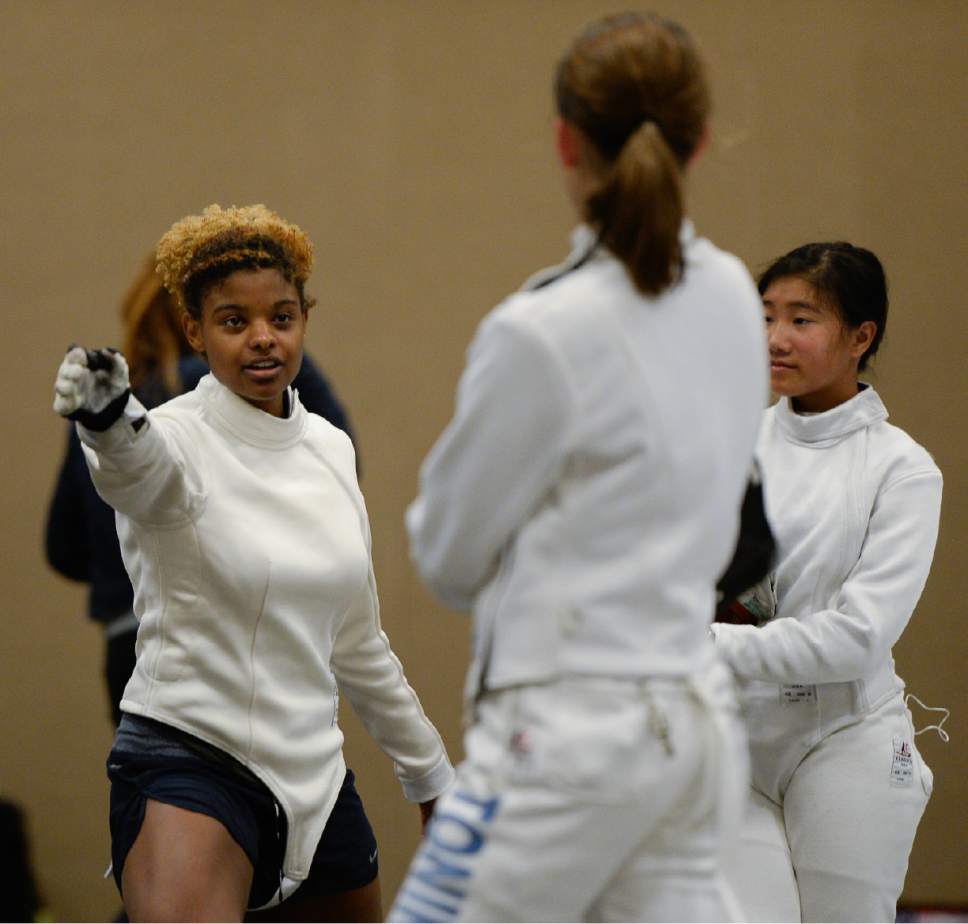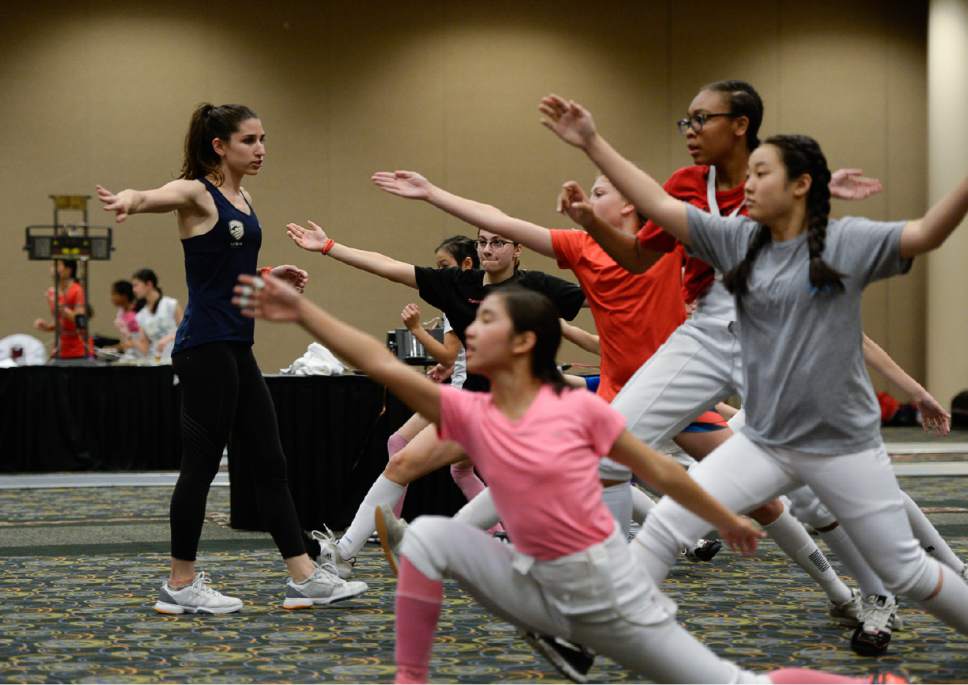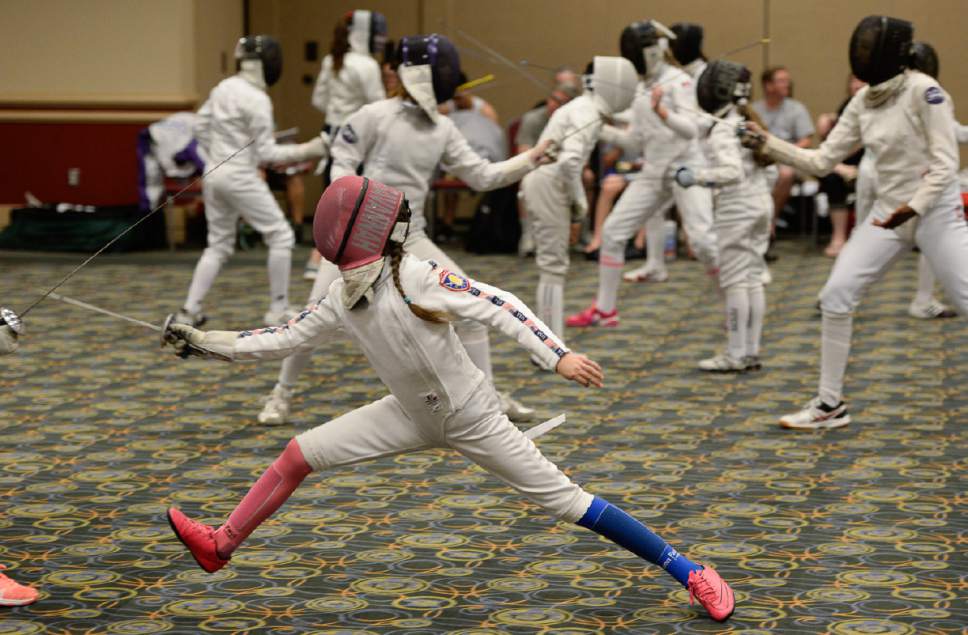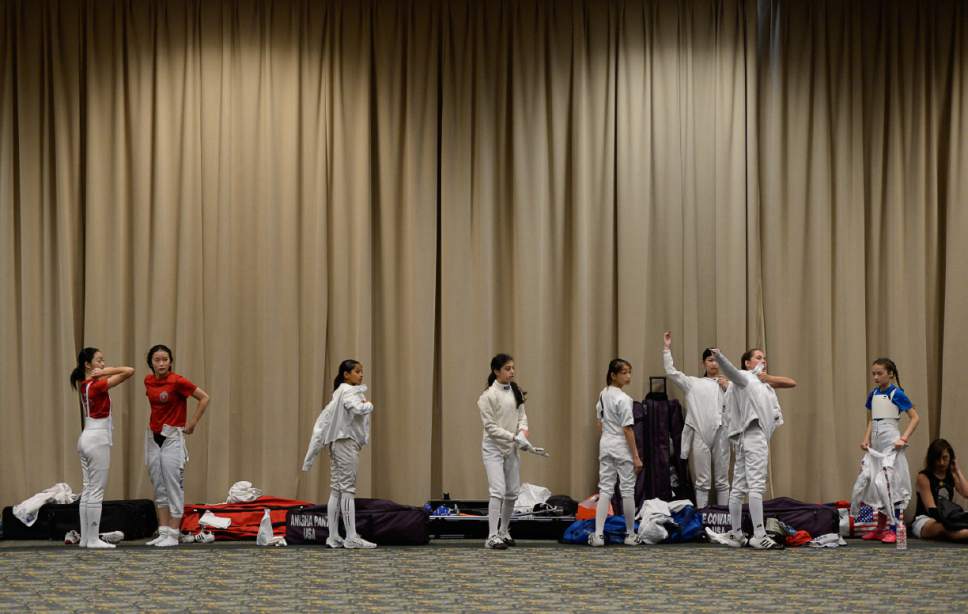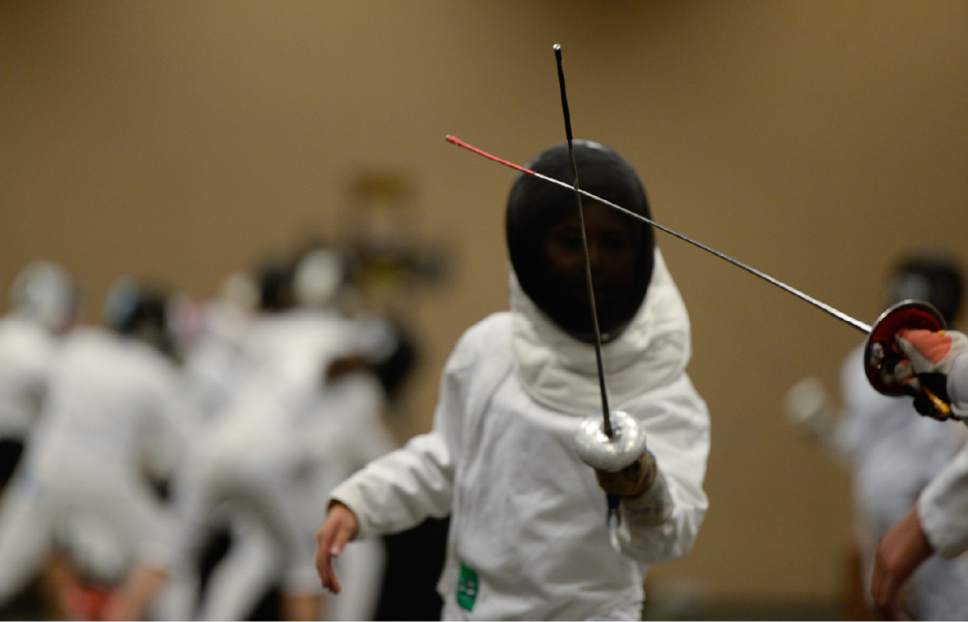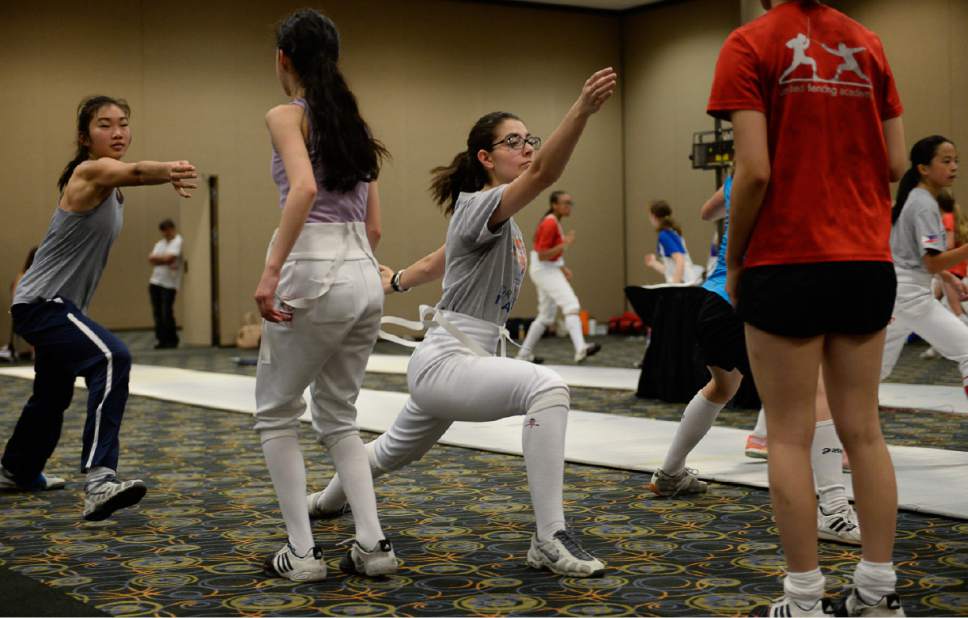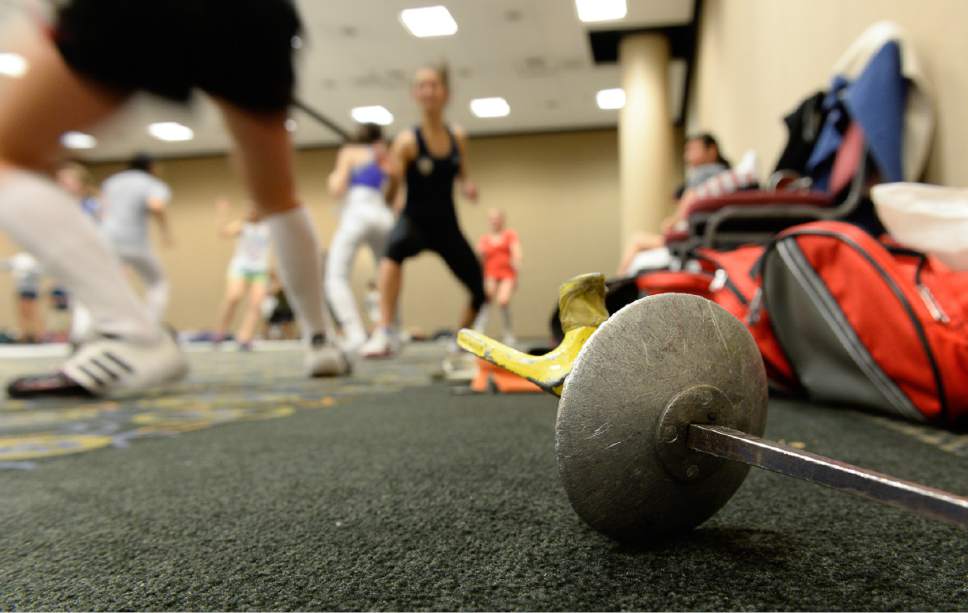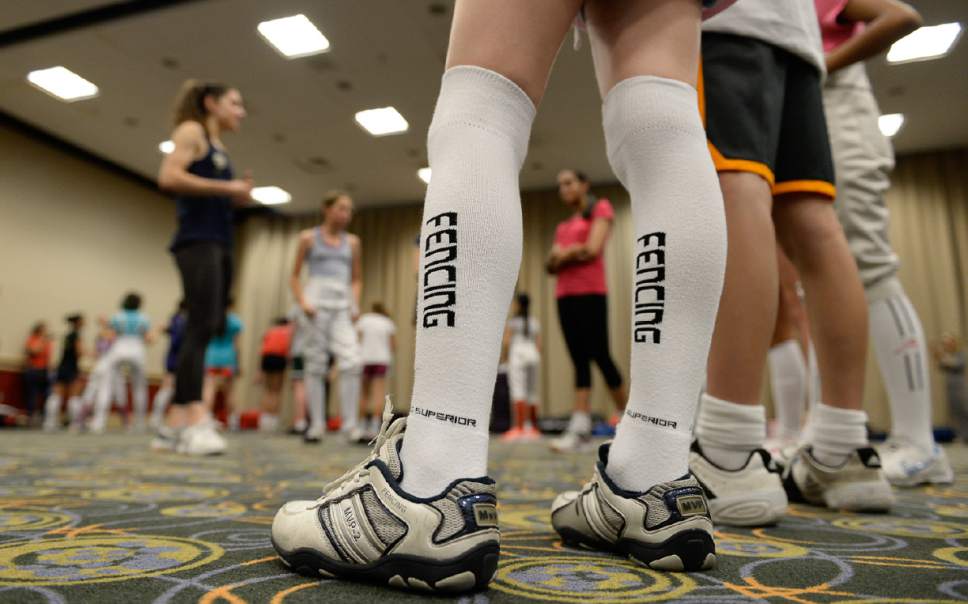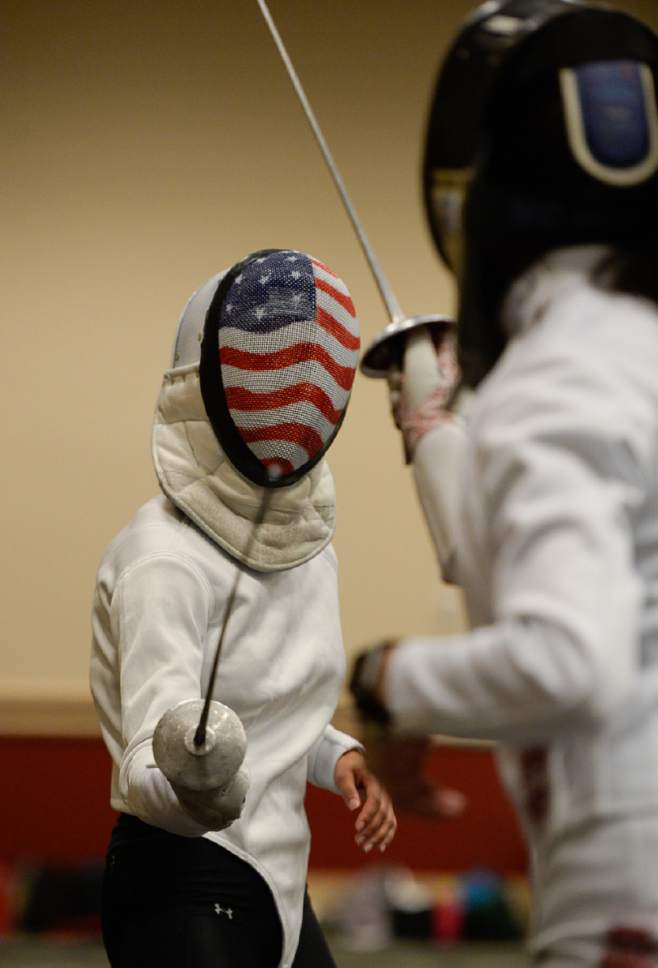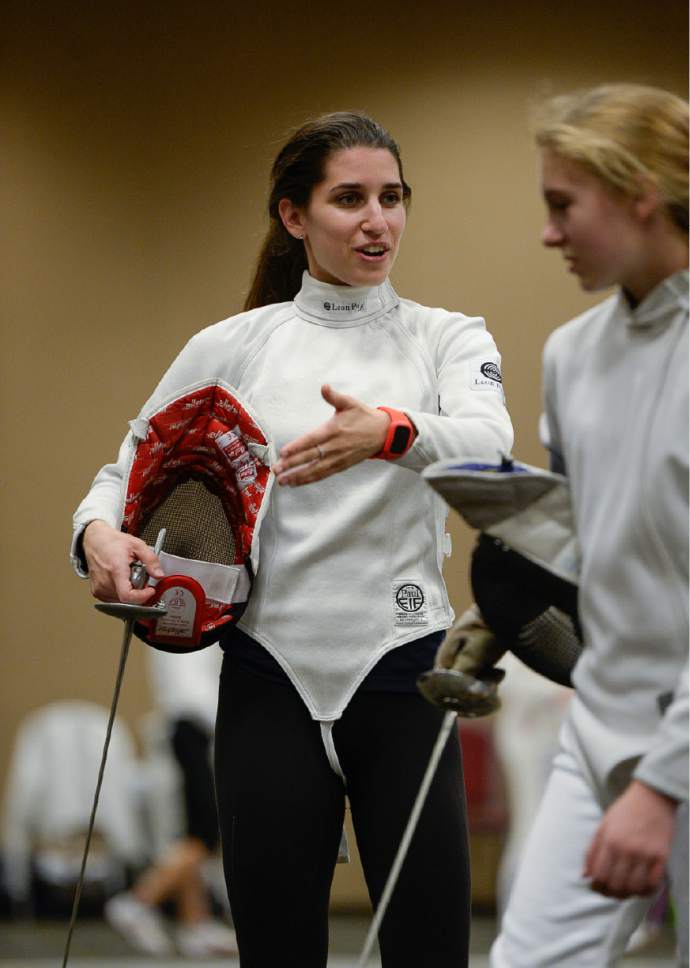This is an archived article that was published on sltrib.com in 2017, and information in the article may be outdated. It is provided only for personal research purposes and may not be reprinted.
Most professional athletes can pinpoint a person or moment that inspired them to pursue a career in their chosen sport.
For Olympic fencer Alex Massialas, it was his father, Greg Massialas, who competed as a fencer in the 1984 and 1988 Summer Olympics.
The younger Massialas, who was raised in San Francisco, used his father's trophy case — one that featured his Olympic rings, Ivy League memorabilia and trophies — as a source of inspiration. When his father opened his own fencing club and began to coach some of his friends, Massialas was allowed to start training.
"I was so excited," Massialas said. "He would sometimes let me participate in the footwork or do some of the technical things before that, but never a full practice. So when he told me he was starting a new set of introductory sessions and told me I could start, I was beyond excited to get out there and start practicing the sport."
Massialas went on to fencing fame, winning a silver medal in men's foil and a bronze in men's team foil at the Rio Olympics last year.
Massialas and some of his U.S. teammates want to serve as inspiration for aspiring fencers. That's why he and other Olympic fencers hosted a clinic for junior cadet and youth foil fencers Friday at the U.S. Fencing Championship at the Salt Palace.
"We do this to make sure we are accessible and available to the kids for questions and interactions," Massialas said. "I know growing up, for myself, I was lucky to have the best access to an Olympian in my father. Through my dad I had a lot of [interactions with] Olympians while they were still competing and as I was growing up I started to fence. So this is a chance for me to give back and really get involved with the fencing community, especially the younger generation of kids that will be fencing when we're long gone."
While the clinic featured different exercises designed to help strengthen the young fencers' fundamental skills, Olympic fencer Nicole Ross, who competed at the 2012 London Games, stressed the mental part of the sport.
"The biggest lesson to convey is that nothing comes easily for us," Ross said. "There is a lot of stuff that we do to be as good as we are, and it takes a lot of work and things behind the scenes. So I think the biggest lesson is just that this kind of hard work is what leads to the success. It's not something that happens overnight or comes innately to any of us."
That message reached the students, as evidenced by the questions during the Q&A. Participants wondered: How do you balance school and training? Where do you find your motivation? How do you cope when you are in a sudden-death situation? What do you do when you are feeling nervous?
"I still get nerves," Ross told the participants. "But I try to put things in perspective and ask myself: 'What is the worst thing that could happen?' I actually say out loud 'I am not afraid.' "
Some of the participants repeated that mantra when they got one-on-one time with the athletes who inspire them.
"It was nerve-wracking," said 14-year-old Galit Rangach, who went head-to-head with Olympian Nzingha Prescod. "I didn't really want to mess up in front of them, but I did. They really helped me, and I could see myself practicing and hopefully getting to the Olympic level."
The rewards weren't limited to the participants.
"Any time you are a mentor to someone, it's a really big responsibility and a huge honor," Ross said. "If we can have an influence on them in even a little way, it makes me happy, and I am proud of that."
Twitter: @kendra__andrews kendra__andrews —
U.S. Fencing Championships
P At the Salt Palace Convention Center, daily through Monday


